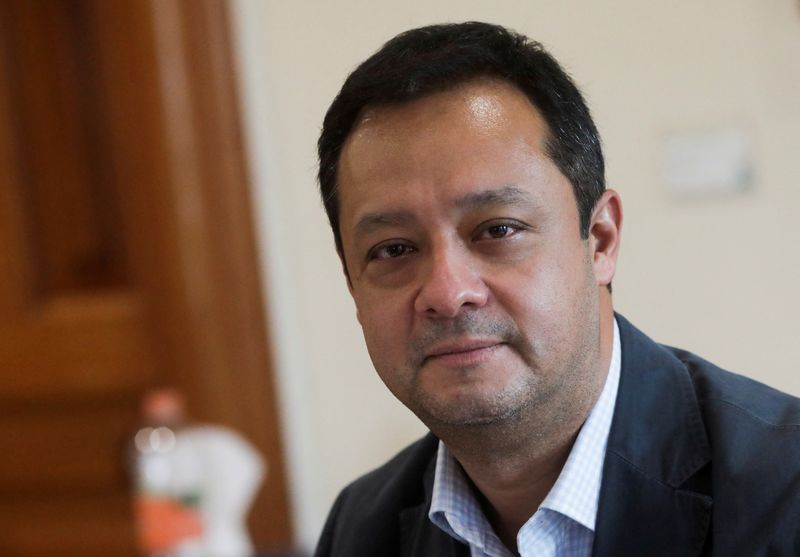Mexico muddies waters on oil hedge to avoid cost hikes from Wall Street, oil majors
2022.10.20 16:22
[ad_1]

© Reuters. FILE PHOTO: Mexican Deputy Finance Minister Gabriel Yorio is seen during an interview with Reuters at the National Palace in Mexico City, Mexico September 9, 2020. REUTERS/Henry Romero
By Anthony Esposito and Ana Isabel Martinez
MEXICO CITY (Reuters) – Mexico has been requesting prices for its oil hedging program year round to make it harder for banks and oil majors, which sit on the other side of the mega deal, to hike prices, said Mexican Deputy Finance Minister Gabriel Yorio.
The world’s largest financial oil deal, the program known as the “Hacienda hedge” is designed to protect the oil revenues of Latin America’s second-largest economy against price crashes on the world market.
In previous years, Mexico has spent more than $1 billion on the program.
“It is being reviewed constantly, we are seeking quotes constantly. Our goal is to cover and protect the budget,” Yorio, who spearheaded the program, told Reuters at the Presidential Palace late on Wednesday.
The new strategy muddies the waters so “you can’t know if we are seeking quotes or buying … we are getting quotes on a recurring basis precisely so that counterparties can’t read us,” he added.
In recent years, Mexico has started to dramatically restrict the amount of information it discloses about the secretive deal.
It classified previously public details, including the overall cost, the strike price for the put options and the amount set aside from the oil revenues stabilization fund that contributes to the overall protection.
Mexico also no longer discloses the names of counterparties, which have long been big Wall Street banks and oil majors.
Due to sensitivities around the hedge, Yorio declined to give details about the strike price of the options.
But the finance ministry official scoffed at the idea that the number was around $75 dollars a barrel, as one media report suggested earlier this month, because that is well above the $68.70 per barrel for the export mix estimated in the 2023 budget.
“My objective is to cover the budget and protect it,” Yorio said. “In the current context of geopolitical tension, oil price volatility is very high and therefore the volatility of the premiums associated with the hedge is very high.”
The finance ministry said in January 2021 that Mexico received a 2020 payout from the oil hedging program of $2.38 billion, compensating for some 80% in lost oil revenues after the coronavirus pandemic sent crude prices tumbling.
[ad_2]
Source link








